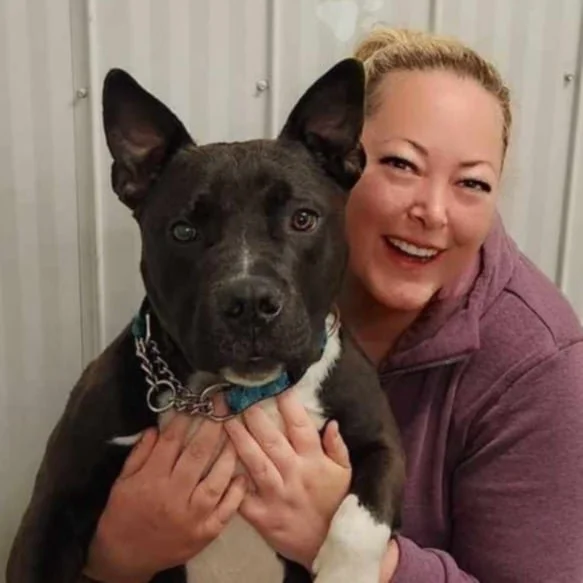Lisa Stagno
1. Why should I consider fostering an animal?
Fostering is more than a safe place to stay—it’s a bridge from fear to hope. Fostering changes lives—twice. For the animal, it means safety, healing, and a second chance at love. For me, it means joy, purpose, and the privilege of watching a scared soul blossom into their true self. Together, we both grow.
2. What kind of animals typically need foster care?
Kittens when they need bottle feeding
Dogs/cats -Too young/senior or fragile for the shelter environment
Animals requiring medical recovery or special care
Overcrowding in shelters means no space- fostering allows the shelter free up space
Dogs who are too stressed or shut down in kennels and require a shelter break
Sometimes when a dog is found as a stray -a foster home helps the NHS find out more about them..(are they potty trained, house manners, how they act in a home setting etc.)
3. How long does a foster animal usually stay in my home?
Anywhere from a few days, few weeks to a few months depending on the needs of the shelter. Sometimes a puppy who requires a few days or weeks until ready to go to new forever home. Sometimes an animal with medical issues needs a few weeks recover. Generally, they stay with you in your home till they are adopted ready for there forever family.
4. What supplies or support does the NHS provide to foster families?
EVERYTHING! Food, bowls, treats, beds, leashes, poop bags and an NHS staff contact- Medical Supervisor and Foster Coordinator - Kimberly, RVT, to answer any questions and for check ins.
5. How does fostering make a difference in the life of an animal—and in mine?
Fostering makes a huge difference for both the animal and the person who takes them in—it’s one of those experiences that truly goes both ways.
For the animal:
Safety & Healing – Many animals enter shelters scared, sick, or traumatized. A foster home gives them a quiet, safe space to rest, recover, and feel secure.
Socialization – Living in a home teaches them how to interact with people, children, other pets, and everyday environments, which makes them more adoptable.
Time & Second Chances – Every foster animal is one less at the shelter, which can be overcrowded. This gives them time to find the right forever home instead of being overlooked or at risk.
Love & Trust – Fosters learn that humans can be kind. For many, it’s their first chance to truly experience care and affection.
For the foster:
A Sense of Purpose – You’re directly saving a life and giving an animal a shot at happiness. That’s incredibly rewarding.
Joy & Companionship – Even temporary, the bond you form is real. Animals have a way of bringing comfort, laughter, and love into your daily life.
Growth & Learning – I have gained patience, empathy, and sometimes even new skills (like training, medical care, or reading animal behavior).
Community Connection – I have become part of a network of other fosters and volunteers, all working toward the same goal.
Flexibility – Unlike adoption, fostering can fit different lifestyles. You can foster short-term or long-term depending on your circumstances.
At its heart, fostering is about transformation: you see an animal come in frightened or uncertain, and then leave confident, healthy, and ready for their forever family. And along the way, you find that they change you, too. It can be hard as you WILL get attached. I cry every time they get adopted but when I receive updates from the forever families it makes the tears worth it and my home and heart open for the next one.
Lisa & former foster, Bruce


